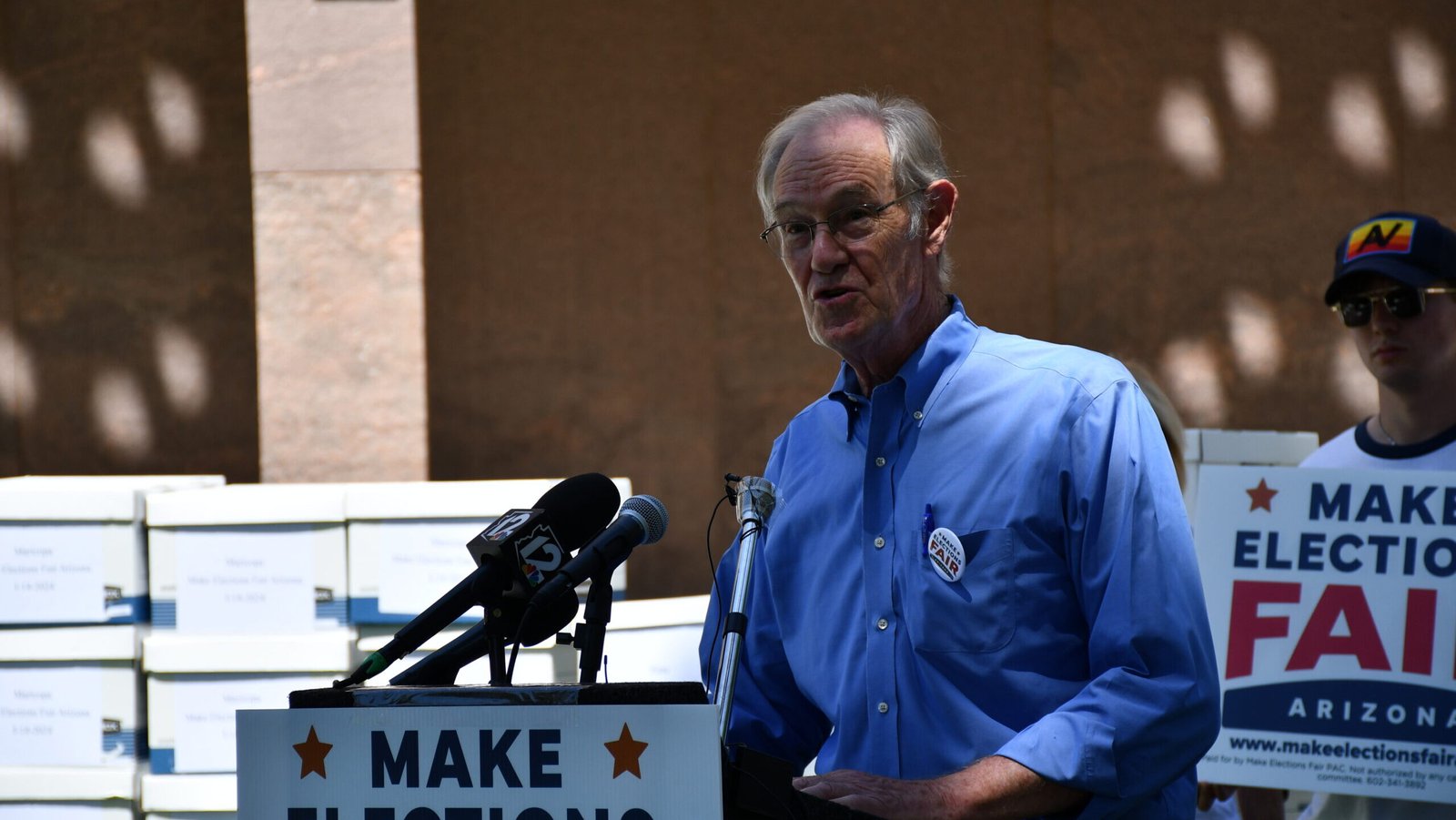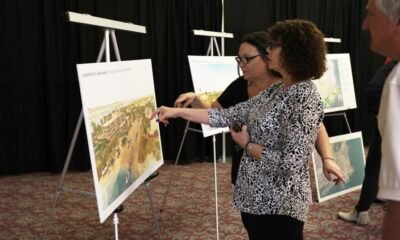2024 election
Push for ‘Open Primaries’ Gains Momentum with Nearly 600,000 Signatures for November Ballot

Proponents of the Make Elections Fair Act have turned in nearly 600,000 voter signatures to the Secretary of State’s Office, well above the required threshold, to place their initiative on Arizona’s November ballot.
This measure aims to amend the Arizona Constitution, opening up primary elections to all voters and candidates regardless of party affiliation.
Under current rules, independent voters can only participate in the presidential primary by changing their registration to align with a political party. This limits their influence in key electoral processes. As of April, almost 34% of Arizona’s registered voters were unaffiliated, compared to 35% Republicans and 29% Democrats. Consequently, a sizeable segment of the electorate remains excluded from primary participation.
On Wednesday, the bipartisan committee behind the initiative submitted 584,000 signatures, approximately 200,000 more than required. Election officials will now verify these to ensure the campaign secures the 383,923 valid signatures needed.
Supporters argue this act will broaden the electorate’s influence, moving power away from the small percentage of partisan voters who currently dominate primary elections. In predominantly single-party legislative and congressional districts, few general election races are competitive, with around 80% of these races effectively decided in low-turnout primaries.
Chuck Coughlin, president and CEO of the campaign’s consulting firm, Highground Public Affairs, critiqued the current system at a press conference, calling it “lunacy” and asserting that both major parties have failed democratic processes. He emphasized that the Make Elections Fair Act would dismantle partisan controls in primaries, fostering more competitive general elections.
Should voters pass the measure, primary elections would feature a single, unified ballot listing all candidates, allowing voters to choose regardless of party affiliation. The legislature and governor would decide how many candidates progress to the general election. For single-office positions like governor or attorney general, two to five candidates would advance, with ranked-choice voting applied if more than two candidates compete.
In multi-seat contests, such as for the Arizona House of Representatives, four to seven candidates could move forward, though ranked-choice voting would be optional.
The Arizona Republican Party has formally opposed the initiative, warning it could cause voter confusion and disenfranchise voters, arguing it would strip electoral power from Arizonans. In response to ranked-choice voting rumors, Republicans in the state legislature last year passed House Concurrent Resolution 2033, which will also go to November’s ballot. This resolution aims to affirm the current direct primary model, effectively prohibiting ranked-choice voting if it garners more votes than the Make Elections Fair Act.
Prominent Republican figures remain divided. Sen. Justine Wadsack, a supporter of HCR 2033, voiced strong opposition, citing concerns of voter disenfranchisement. Contrarily, Beau Lane, co-chair of the Make Elections Fair Act and a lifelong Republican, supports the measure, believing it will make the party more competitive and appealing to independent voters. He pointed out the Republican Party’s mixed success in recent statewide elections, stressing the need for reforms in voter engagement and competition.
Sarah Smallhouse, another co-chair of the initiative, highlighted that open primaries would encourage candidates to address substantial issues rather than engage in partisan attacks, attracting more thoughtful candidates to the public policy arena.


















